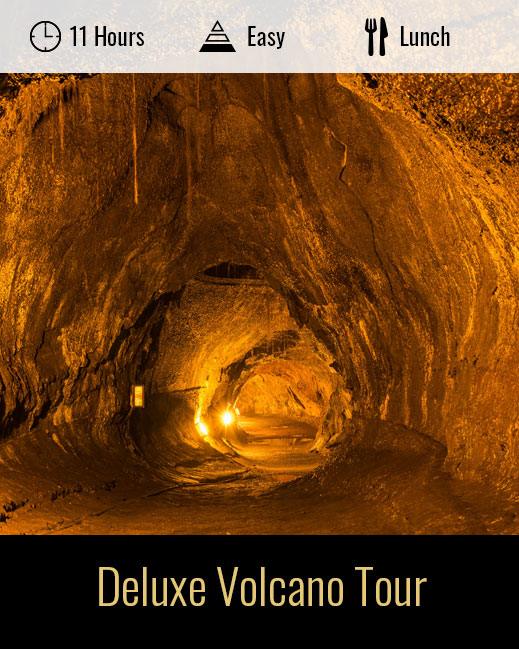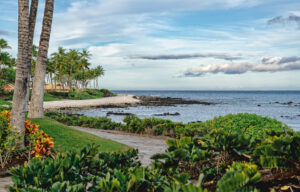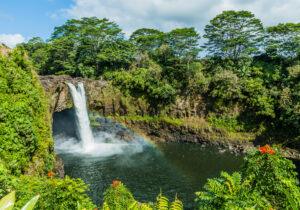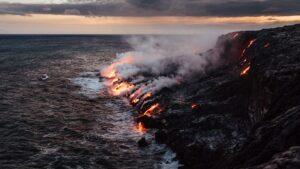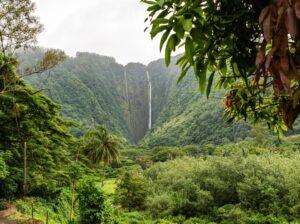Megan Shute for Only In Your State on the Thurston Lava Tube. Our volcano tours visit the Hawaiʻi Volcanoes National Park and the Thurston Lava Tube in comfort and luxury.
With more than 323,000 acres to explore, Hawaiʻi Volcanoes National Park is the state’s largest national park — and it’s still growing! This national park to visit in Hawaiʻi is also home to Kilauea, one of the world’s most active volcanoes, and Mauna Loa, the world’s most massive subaerial volcano, and several stunning geological gems just waiting to be explored. There were a lot of natural wonders that were closed off after the eruption of Kilauea in 2018 but they are open and ready to see, including one of our favorite spots. You’ll love everything you see, especially the Thurston Lava Tube in Hawaiʻi!
Perhaps one of Hawaiʻi’s most well-known lava formations, the 500-year-old Thurston Lava Tube in Hawaiʻi is a fascinating natural structure.
After the May 2018 Kilauea eruption triggered a 6.9-magnitude earthquake in the park, there was damage to the lava tube that needed to be fixed. It’s one of the most fascinating features of one of the best parks in Hawaiʻi.
During the 2018 earthquake, several large rocks were dislodged from the ceiling of the lava tube. The eruption caused lots of damage, including new cracks that appeared.
Extensive repairs were required — and as a part of the restoration — monitors were installed to examine the cracks and a low-hanging rock was marked in an attempt to prevent head injuries.
Drainage improvements were also made to reduce standing water on the cave’s floor, and now, this unique geological feature is just as stunning as ever.
If you’re looking for things to do outside in Hawaiʻi, visiting the Thurston Lava Tube should be at the top of your list. It’s an absolutely stunning way to spend an afternoon.
Lava tubes are formed when a river of lava develops a continuous and hard crust, thickening and forming a roof and walls around the still-flowing lava stream.
When the lava flow stops, the remaining lava flows downhill, and you are left with a tunnel. And sometimes, you’re lucky enough that a lava tube is accessible inside a national park and you’re able to visit these natural curiosities in person!
Also known as Nahuku, this famous lava tube was discovered by Lorrin Thurston in 1913. The Hawaiʻian name translates to “the protuberances,” referring to the lava tapering hanging structure that once covered its ceilings.
The entire trail is about 0.4 miles and is well maintained. Be prepared for very limited parking, and get there early if you can.
Lit by electric lights, Nahuku features a flat-rock floor and ceiling height of nearly 20 feet in some places. The 600-foot-long cave will make you feel as though you’ve entered another world, and you’ll want to bring your camera.
And don’t forget sturdy boots and rain gear, in case the weather gets wet. There are also bathrooms available nearby.
The Thurston Lava Tube is easily the most accessible cave of its kind in the Aloha State, and the 20-minute walk to and through the lava tunnel is not only easy but quite ethereal as well.
Even though there’s electric light, the Lava Tube is easy to navigate best during the hours of 8:00 a.m. to 8:00 p.m., when there’s plenty of daylight. It will make the entire trail more enjoyable for everyone in your party.
Whether you visited the Thurston Lava Tube in Hawaiʻi before the 2018 Kilauea eruption or not, you’ll want to visit now. The landscape of this breathtaking national park to visit in Hawaiʻi has changed drastically over the last two years and it sure is fascinating to see.

